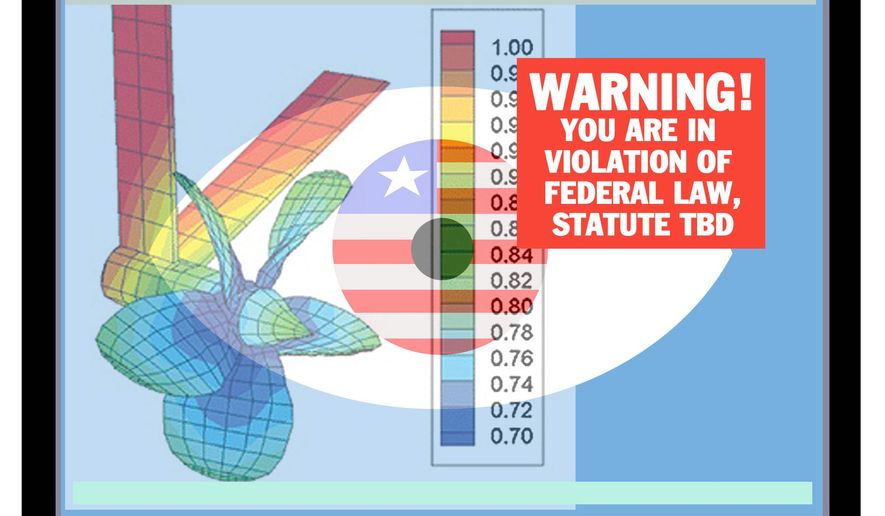OPINION:
The State Department has proposed a regulation to broadly criminalize online content ranging from technical discussions about boat propellers to basic engineering principles. Failure to obtain the appropriate license can result in 20 years in prison and a $1 million fine. We could hope that the administration will not abuse its newfound authority, but to do so would violate John Adams’ advice that, “the only maxim of a free government ought to be to trust no man living with power to endanger the public liberty.”
The State Department is exhibiting a favorite method of aggrandizing government power: First, write a broad, vague regulation that criminalizes everyday conduct; second, say it will only be used against the really bad guys; and finally, use it against anyone the government dislikes.
The latest embodiment of this classic strategy is an expansion of the International Traffic in Arms Regulations (ITAR) to criminalize discussions that are neither international nor pertaining to trafficking in arms. The State Department proposes to define posting certain “technical data” on the Internet as “exporting” military technology — even if the technology is not military. The information need only be “required” for the “development” or “operation” of anything on the “Munitions List,” a long list of technologies, including everything from hunting rifles to tanks, battleships and night vision goggles.
The regulation’s overbreadth stems from the vast amount of civilian knowledge “required” to make military items. In order to make a simple gun, for example, one must know the diameter of the barrel, how to make a spring for the trigger and some basic physics. In order to make a battleship or a military transport, a great deal of civilian technology is required: how to make steel stronger, how to vulcanize rubber for tires, or the best design for a boat’s propeller. The Munitions List also includes “bomb,” so be careful of discussing the details of fertilizer or electronic switches without a government license.
Perhaps most concerning, the Munitions List contains a catchall provision allowing the State Department to impose ITAR control over “any article not enumerated on the U.S. Munitions List.” Read literally, the Munitions List contains every technology on it, and any technology not on it that the State Department feels like regulating. In simpler terms, this could be expressed as “anything the State Department wants to regulate.”
The International Traffic in Arms Regulations’ broad scope is no accident. The State Department’s awareness of ITAR’s overbreadth is evidenced by its exclusion of basic “scientific, mathematical, or engineering principles” so long as they are “commonly taught” in academic institutions. By omission, the State Department claims authority to regulate scientific principles not commonly taught in academic institutions. When the government needs to exclude physics from its speech restriction, it has overstepped.
The administration’s attempted solution to the vagueness and overbreadth of its regulatory regime is to require anyone wishing to post information on the Internet to apply for a license “if doubt exists” as to whether the information is covered by ITAR. That is no solution but a prior restraint on speech — perhaps the most clearly unconstitutional of all speech restrictions.
The State Department’s attack on free speech is not warranted by national security concerns. Even were it possible to keep information about hunting rifles away from jihadists or Chinese spies, that goal could not possibly justify banning the discussion of information that is already on the Internet. Yet, that is what the proposed change does.
In an abuse of language that would make most lawyers blush, the proposed rule narrows the exception for information in the “public domain” to include only information already approved for publication by a federal agency. So repositing “technical data” available online in foreign countries is covered, even though the State Department cannot remove that information from the Internet and foreign militaries already have access to it.
The Obama administration’s failure to restrict the size of guns’ magazines is no excuse to restrict magazines about guns. And it is certainly no excuse to restrict non-military information already available on the Internet. This power grab is not consistent with the Constitution, basic principles of liberty, or even reasonable policymaking. If the administration wishes to modify the International Traffic in Arms Regulations, it should narrow its scope to free online discussion from the threat of prosecution.
• Joel Stonedale is an attorney at the Texas Public Policy Foundation’s Center for the American Future.




Please read our comment policy before commenting.